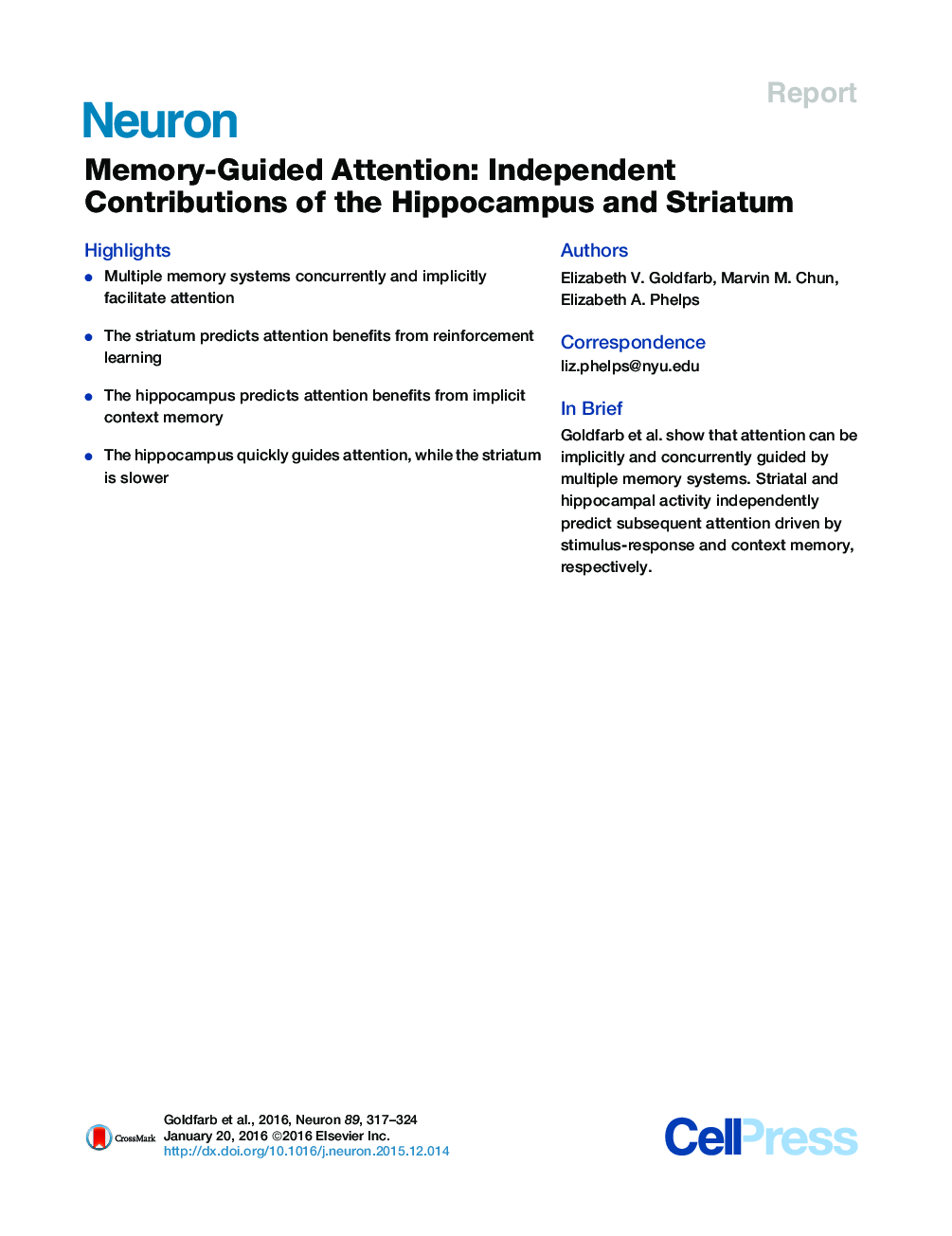| Article ID | Journal | Published Year | Pages | File Type |
|---|---|---|---|---|
| 4320776 | Neuron | 2016 | 8 Pages |
•Multiple memory systems concurrently and implicitly facilitate attention•The striatum predicts attention benefits from reinforcement learning•The hippocampus predicts attention benefits from implicit context memory•The hippocampus quickly guides attention, while the striatum is slower
SummaryMemory can strongly influence how attention is deployed in future encounters. Though memory dependent on the medial temporal lobes has been shown to drive attention, how other memory systems could concurrently and comparably enhance attention is less clear. Here, we demonstrate that both reinforcement learning and context memory facilitate attention in a visual search task. Using functional magnetic resonance imaging, we dissociate the mechanisms by which these memories guide attention: trial by trial, the hippocampus (not the striatum) predicted attention benefits from context memory, while the striatum (not the hippocampus) predicted facilitation from rewarded stimulus-response associations. Responses in these regions were also distinctly correlated with individual differences in each type of memory-guided attention. This study provides novel evidence for the role of the striatum in guiding attention, dissociable from hippocampus-dependent context memory.
